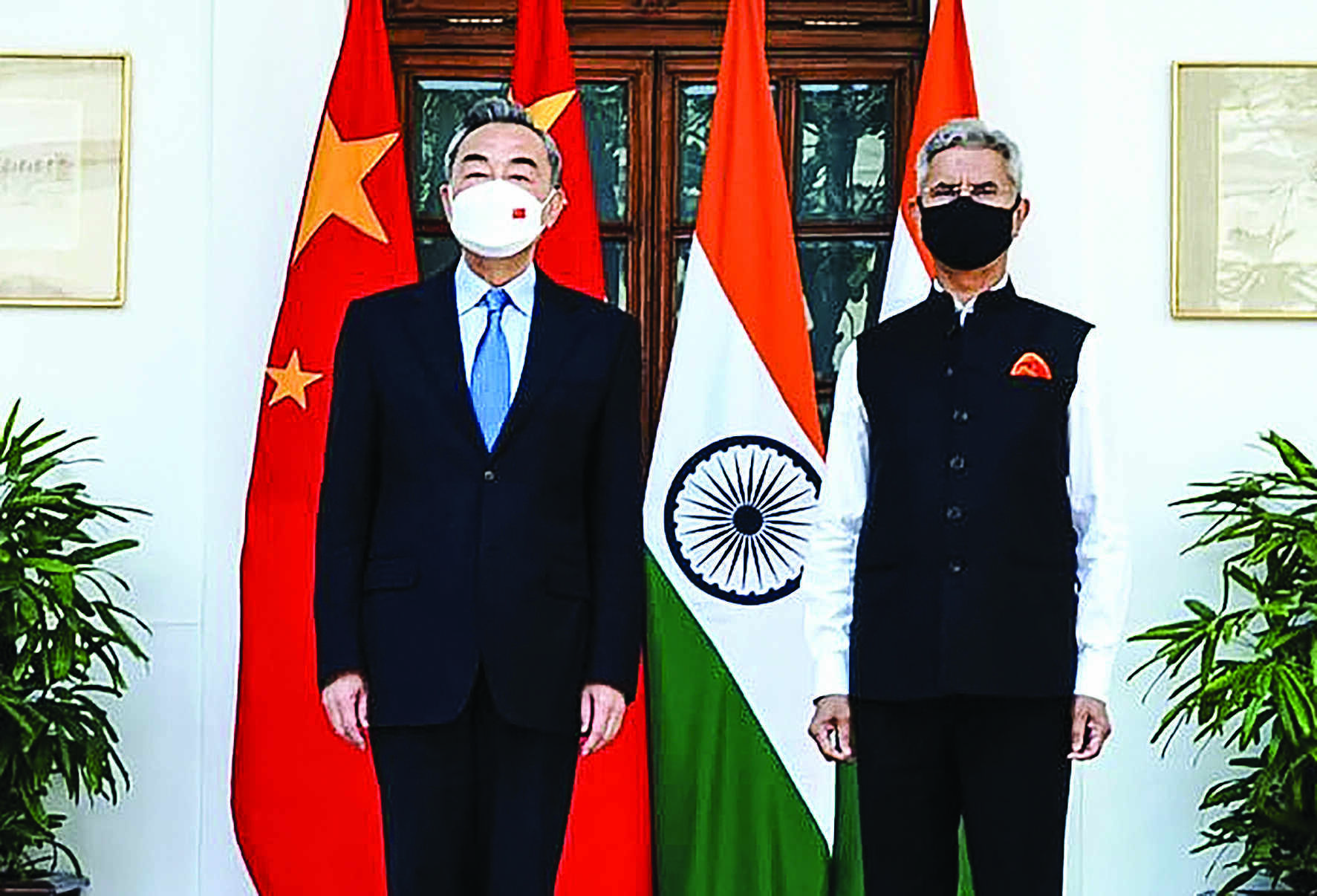Our relation not normal, work in progress, India tells China

New Delhi: Describing the bilateral relation between India and China as "not normal" and a "work in progress", Minister of External Affairs S Jaishankar informed his Chinese counterpart Wang Yi that "until the de-escalation agreement is imposed on the ground, the situation will not normalise at LAC".
The Indian external affairs minister said, "The impact of the tensions in the border areas on the overall relationship has been visible in the last two years. This is only natural since peace and tranquillity in the border areas have been the foundation of stable and cooperative ties."
He mentioned, "We have had 15 rounds of talks between Senior Commanders and progress has been achieved on several friction points from the disengagement perspective. This needs to be taken forward since the completion of disengagement is necessary for discussions on de-escalation to take place."
Wang, who arrived on Thursday and met National Security Adviser (NSA) Ajit Doval for an hour, then held bilateral talks with Jaishankar on Friday before leaving for Kathmandu.
According to Jaishankar, talks were "open and candid".
"I was very honest in my discussions with the Chinese Foreign Minister, especially in conveying our national sentiments on the border issue. The frictions and tensions that arise from China's deployments since April 2020 cannot be reconciled with a normal relationship between two neighbours," the minister briefed the media persons.
Jaishankar also confirmed that Chinese Foreign Minister Wang Yi spoke about China's desire for a return to normalcy, while also referring to the larger significance of ties of both countries. While talking to the media after the meeting, the external affairs minister also said, "I would describe our current situation as work in progress, obviously at a slower pace than desired, and my discussions with FM Wang Yi were aimed at expediting the process."
The external affairs minister said he laid out India's principled approach to international relations at the talks, adding it is based on respect for international law, UN Charter and sovereignty and territorial integrity of states. "Disputes should be resolved without use or threat of use of force. Nor should there be attempts to unilaterally change the status quo," he said, seen as a message to China.
Jaishankar further asserted that his Chinese counterpart and he have been in touch with each other over the last two years, even though, they had not visited each other's country. There was a meeting between two foreign ministers in Moscow in September 2020 and then again in Dushanbe in July and September 2021. Also, they have had telephonic conversations on the situation in the border areas. "Our meeting had led to an understanding on disengagement and de-escalation," the minister added.
People familiar with the development said the Chinese side made a request to the Indian side to facilitate a call on by Wang with Prime Minister Narendra Modi but it was turned down. Besides the border standoff, the talks covered a range of issues including the Ukraine crisis, the situation in Afghanistan, cross-border terrorism from Pakistan, bilateral trade and investment.
During the meeting the Indian foreign minister also raised the difficulty of Indian students studying in China who have not been allowed to return, citing COVID-19 restrictions. Jaishankar also confirmed that the Chinese minister Wang Yi assured him to speak to the relevant authorities on his return on this matter.
"We also discussed specific regional situations. Insofar as Afghanistan is concerned, India's policy is guided by the UN Security Council Resolution 2593. In Ukraine, we discussed our respective approaches and perspectives but agreed that diplomacy and dialogue must be the priority. We also spent some time on multilateral issues. I also emphasized the need to take forward the long-overdue reform of the UN system, including the Security Council," Jaishankar said.
Asked whether Wang talked about inviting Modi to a summit of BRICS (Brazil, Russia, India, China, and South Africa) later this year, Jaishankar said China's hosting of the event figured in the talks.
"Yes, Foreign Minister Wang Yi, and I discussed the Chinese chairing of the BRICS and they spoke obviously about hosting a summit at which they would like naturally the participation of all the leaders," he said.
At a separate meeting, National Security Adviser Ajit Doval conveyed to Wang that an early and complete disengagement of troops at the friction points was key to build mutual trust and creating an enabling environment for progress in relations.
The NSA said there was a need to ensure that actions do not violate the spirit of "equal and mutual security" and highlighted the need for resolving the outstanding issues as quickly as possible, official sources said.
According to sources Chinese foreign minister Wang Yi also invited Doval to visit China for talks of Special Representatives (SRs) on the broader resolution of the India-China boundary, but an official communication mentioned that he could visit only "after immediate issues are resolved successfully".
At the same time referring to Wang's comments in Islamabad on Kashmir, earlier this week, the External Affairs Minister S. Jaishankar said he explained why the comments made at the Organisation for Islamic Cooperation (OIC) were "objectionable" and suggested to his Chinese counterpart that "China would follow an independent policy towards India and not to follow influences by other countries."



